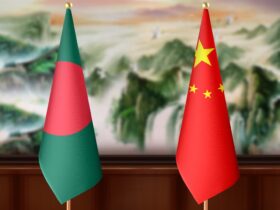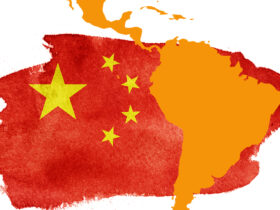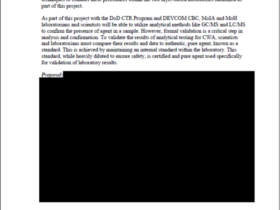Why Russian Vice-president Medvedev is right when saying that Trump lives in an “alternate reality”.
Why Russian Vice-president Medvedev is right when saying that Trump lives in an “alternate reality”.
By Sergio Rodríguez Gelfenstein
Dedicated to the Heroic Guerrilla,
Commander Ernesto Che Guevara,
on the 58th anniversary of his passing into immortality
After reading a recent article by former Russian President Dmitry Medvedev, I was left thinking about a phrase he said: “Trump has once again entered an alternate reality…” With the unique irony that has characterized him in recent years and that has driven the American president mad more than once, the current Vice President of the Russian Security Council advised Trump that, to analyze Russia, “the main thing is to radically change your perspective on various issues more frequently. And everything will be fine. This is the essence of successful public administration through social media.”
And it seems to me to be true: the President of the United States lives in a virtual reality produced by his egotism and megalomania. Analyzing his first nine months in office, one can see that he didn’t take over the Panama Canal, nor did he occupy Greenland; Canada didn’t become the 51st state of the North American union, and the Gulf of Mexico is still called that.
The economy is no better. Since the beginning of this year, the dollar has fallen 10% against the pound sterling and 15% against the euro. In May, the credit rating agency Moody’s, following in the footsteps of Fitch and S&P, downgraded the US debt, which currently stands at $37 trillion, representing 122% of the Gross Domestic Product (GDP), with growth of approximately $1 trillion every three months.
A study by the Congressional Budget Office indicates that this figure was expected to be reached by 2030. This is a remarkable advance. According to Michael Peterson, president and CEO of the Peter G. Peterson Foundation, the debt is growing “more than twice as fast as the average rate of the past 25 years.” Furthermore, the US federal budget deficit currently stands at around 8% of gross domestic product (GDP). From 1960 until the global financial crisis, the deficit averaged around 5% of GDP. Trump isn’t exactly showing good economic news.
For his part, while he announced with great fanfare that he had managed to reduce his country’s inflation rate, the truth is that it accelerated to 2.9% in August 2025, the highest since January. Food prices rose at a faster pace (3.2% compared to 2.9% in July).
In his schizophrenic UN speech, Trump claimed to have stopped seven wars, when in reality he didn’t stop any of them. He even went so far as to invent one between Egypt and Ethiopia. He threatened Brazil with high tariffs on its exports to the United States, and now China buys all the South American country’s surplus coffee, creating a huge deficit in the U.S. market. Something similar happened with soybeans, but with far worse repercussions because it affects thousands of producers, mainly in the Midwestern states of the United States (Illinois, Iowa, Minnesota, Nebraska, and Ohio), some of which traditionally vote Republican.
Washington’s trade war with Beijing caused Chinese imports of US soybeans to plummet to their lowest level in 2025. In contrast, Brazil became the main supplier of the grain to the Asian giant. Between January and August 2025, China imported only 5.8 million tons of US soybeans, compared to 26.5 million tons in the same period the previous year, a drop of almost 80%. From June to August of this year, the United States shipped virtually no soybeans to China, and the Asian country did not purchase new products for next year’s harvest. This represents a significant difference with Brazil, which exported more than 77 million tons of soybeans to the Chinese market during the same period.
On another note, Trump reported that the United States has received nearly two trillion dollars in European, Japanese, Korean, and Swiss investments during his administration, but no one has seen them; they never existed except in his own messed-up head. Anyone with doubts about this can search the internet for denials from each of those involved.
Seen from another perspective, according to Hinterlaces, Trump’s UN speech was more like “a globalized election rally” than anything else. This Venezuelan website points out that the speech was “predominantly self-centered,” with almost half of the speech devoted to self-aggrandizement. Similarly, his “confrontational tone” on issues such as migration, military conflicts, and criticism of the UN were highlighted, along with a “lack of global vision”, in which issues related to climate change, multilateralism and Latin America played a completely marginal role.
But perhaps where the greatest instability in the United States today lies is that which is produced by the intensification of discrepancies between the political and military leaders of the Pentagon regarding the new defense strategy prepared by the Administration.
Secretary of War Pete Hegseth’s position—that the focus of US military concerns should be on confronting and defeating internal threats—is opposed by the Armed Forces’ top brass. Many generals and admirals believe the secretary minimizes US competition with China and diminishes the country’s role in Europe and other regions. Although such a strategy has not yet been fully developed, it is reportedly in its final stages of development, enunciating an inadequate and limited vision as an expression of “President Trump’s contradictory approach to foreign policy,” according to sources linked to the Pentagon who shared these opinions with the Washington Post, a staunch defender of Trump’s policies. Senior officers also consider that the current administration’s strategy has not been well-thought-out and will ultimately undermine the integrity of the Armed Forces.
The military fears that these views will lead to an inappropriate allocation of resources and an improper deployment of the Armed Forces. They have also refuted the secretary’s position on the administration’s position on competition with China, which seeks to reduce it to the “Taiwan question,” downplaying larger-scale confrontation and containment of the Asian giant.
It’s worth noting that although Hegseth was a member of the U.S. Army National Guard, he only reached the rank of captain. His highest responsibilities were commanding an infantry platoon in Iraq and teaching counterinsurgency tactics in Afghanistan. He lacks the operational or strategic training to be the highest-ranking U.S. military official. It’s worth noting that the current secretary failed in his bid to be elected senator for the state of Minnesota, and that his appointment to his current position was rejected by half of the senators and only secured by a tie-breaking vote in his favor from Vice President J.D. Vance. Even Missouri Republican Senator Eric Schmitt, arguing in his favor, pointed out that Hegseth’s lack of experience was an advantage, which should be embraced as “a breath of fresh air.”
His “qualifications” for assuming such an important position are related to his unwavering loyalty to Trump and his open supremacist, fundamentalist, homophobic, and conservative leanings, which, however, are not enough to command any country’s military apparatus.
In this context, a meeting was recently held at the Marine Corps Base in Quantico, Virginia, southwest of Washington, D.C., to which 800 admirals and generals were summoned from U.S. military establishments around the world to learn firsthand about the “strategic thinking” of Hegseth and Trump. The meeting was an unusual and unprecedented event since World War II, as such many high-ranking officers had never before been gathered in one place.
During his speech, Hegseth lashed out at the “woke” ideology that had developed within the military under previous administrations. He argued that US troops currently fit the Republicans’ image of the “woke” liberal left. In announcing the War Department’s new measures, Hegseth harshly attacked overweight service members, bearded men, and those with long hair, as well as “individual and superficial expressions.” He also declared the end of “men in dresses” and equity, diversity, and inclusion policies, promising a new military modeled after the MAGA administration.
President Trump also attended the same meeting. The generals and admirals listened in amazement, without any emotion or opinion, to the Trumpian tirade of self-congratulation, which seemed unusual coming from an individual convicted of 34 crimes and a five-time draft evader.
Faced with the military’s impassiveness, and in an incredibly insulting and superficial display in front of a clearly embarrassed military leadership, Trump told them: “You can clap if you want. If you want to get up and walk away, you can do that too but forget your ranks and your careers.”
The world must confront this swindle called the United States government, which has been shut down for eight days due to a budget shortage, that exposes the deep contradictions among the elites. The world knows that Trump and his cronies in the administration have only threats, pressure, and blackmail as their tools; arrogance, pride, and supremacy as their rhetoric; and, ultimately, violence, aggression, armed intervention, and war as their instruments to ensure their survival.
In this regard, it should be noted that, as veteran journalist Peter Baker, who has covered the White House for the New York Times since 1996, says when analyzing the personalities of American presidents in recent decades, “with Trump, however, it’s often as much about his own gut instinct as any global thinking.” This is the reason for the danger: the leader of the world’s greatest power can make decisions based on what his liver tells him, not necessarily his brain.

















Leave a Reply